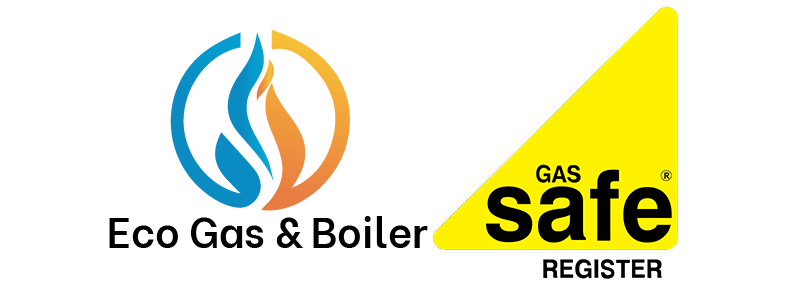When the cold winter months set in, the last thing anyone wants to deal with is a heating breakdown. It’s not just an inconvenience; it can be a serious issue that affects your comfort and safety. Understanding how to handle and prevent heating breakdowns is essential. This comprehensive guide will explore effective solutions, preventive tips, and emergency measures to ensure your heating system stays in top condition.
Understanding Heating Breakdowns
A heating breakdown occurs when your system fails to function properly, leaving you without adequate warmth. This can be due to various reasons such as mechanical failures, electrical issues, or lack of maintenance. Identifying the cause of the breakdown is the first step towards finding a solution.
Common Causes of Heating Breakdowns
Several factors can contribute to a heating breakdown. These include:
- Lack of Maintenance: Regular maintenance is crucial to ensure the longevity and efficiency of your heating system. Neglecting routine checks and services can lead to unexpected breakdowns.
- Wear and Tear: Over time, the components of your heating system can wear out, leading to malfunctions.
- Thermostat Issues: A faulty thermostat can cause your heating system to function improperly or not at all.
- Clogged Filters: Dirty or clogged filters can restrict airflow, causing the system to overheat and shut down.
- Pilot Light Problems: For systems with a pilot light, issues such as a blown-out light or gas supply problems can lead to a breakdown.
Immediate Steps to Take During a Heating Breakdown
If your heating system breaks down, there are several steps you can take to mitigate the issue before professional help arrives:
- Check the Thermostat: Ensure the thermostat is set correctly and the batteries are not dead.
- Inspect the Circuit Breaker: A tripped circuit breaker could cause the breakdown. Reset it if necessary.
- Change Filters: Replace any dirty or clogged filters to improve airflow.
- Look for Obvious Issues: Check for any visible issues, such as loose wires or apparent damage to the system.
Preventive Maintenance Tips
Preventing a heating breakdown is often more accessible and less costly than repairing one. Here are some maintenance tips to keep your system running smoothly:
- Regular Inspections: Schedule annual inspections with a professional technician to identify and address potential issues early.
- Clean and Replace Filters: Clean or replace filters every 1-3 months to ensure proper airflow and efficiency.
- Lubricate Moving Parts: Ensure all moving parts are well-lubricated to reduce friction and wear.
- Check the Pilot Light: Regularly check the pilot light and ensure it’s functioning correctly.
Emergency Heating Services
When a heating breakdown occurs, you may need emergency services to restore warmth quickly. Many HVAC companies offer 24/7 emergency repair services. These professionals can diagnose and fix the problem efficiently, ensuring minimal downtime.
Choosing the Right Heating Repair Service
Selecting a reliable heating repair service is crucial to fixing the problem correctly and promptly. Consider the following factors:
- Reputation: Look for companies with good reviews and a solid reputation in the industry.
- Experience: Choose technicians with extensive experience handling heating systems like yours.
- Licensing and Insurance: Ensure the company is licensed and insured to protect yourself from liability.
- Response Time: Opt for quick response services, especially during emergencies.
Long-term Solutions for Heating Efficiency
Maintaining your heating system’s efficiency can prevent future breakdowns and reduce energy costs. Consider these long-term solutions:
- Upgrade to a High-Efficiency System: Modern heating systems are more efficient and reliable, reducing the likelihood of breakdowns.
- Install a Programmable Thermostat: Programmable thermostats can optimize heating schedules, reducing strain on the system.
- Improve Home Insulation: Proper insulation can help maintain indoor temperatures, reducing the workload on your heating system.
Heating Breakdown FAQs
What should I do if my heating system stops working during a cold snap? Check for simple issues like thermostat settings and circuit breakers if your heating system fails during extremely cold weather. If these are not the cause, contact an emergency heating service immediately to avoid prolonged exposure to cold temperatures.
How often should I schedule maintenance for my heating system? It’s recommended to schedule professional maintenance at least once a year, preferably before the winter season begins. Regular maintenance helps identify potential issues early and ensures your system operates efficiently.
Can I repair a heating breakdown myself? While some minor issues can be resolved by homeowners, such as replacing filters or resetting the circuit breaker, a professional technician should handle most heating system repairs to ensure safety and proper functioning.
What are the signs that my heating system needs repair? Common signs that your heating system may need repair include strange noises, uneven heating, frequent cycling on and off, and higher-than-usual energy bills. If you notice any of these issues, having a professional inspect your system is best.
How can I improve the efficiency of my heating system? To improve your heating system’s efficiency, ensure regular maintenance, clean and replace filters, seal any leaks in ductwork, and consider upgrading to a more efficient model. Proper insulation and a programmable thermostat can also help maintain efficiency.
Is it worth upgrading an old heating system? Upgrading an old heating system can be a worthwhile investment, especially if your current system is inefficient or frequently breaks down. Modern systems are more energy-efficient and reliable and can save money on energy bills in the long run.
Conclusion
A heating breakdown can be a significant inconvenience, but with the right knowledge and preparation, you can handle it effectively. Understanding the common causes, taking immediate steps during a breakdown, and investing in regular maintenance ensures your heating system remains reliable. When in doubt, always seek professional help to address any issues promptly. Remember, a well-maintained heating system keeps you warm, saves you money, and extends the life of your equipment.


